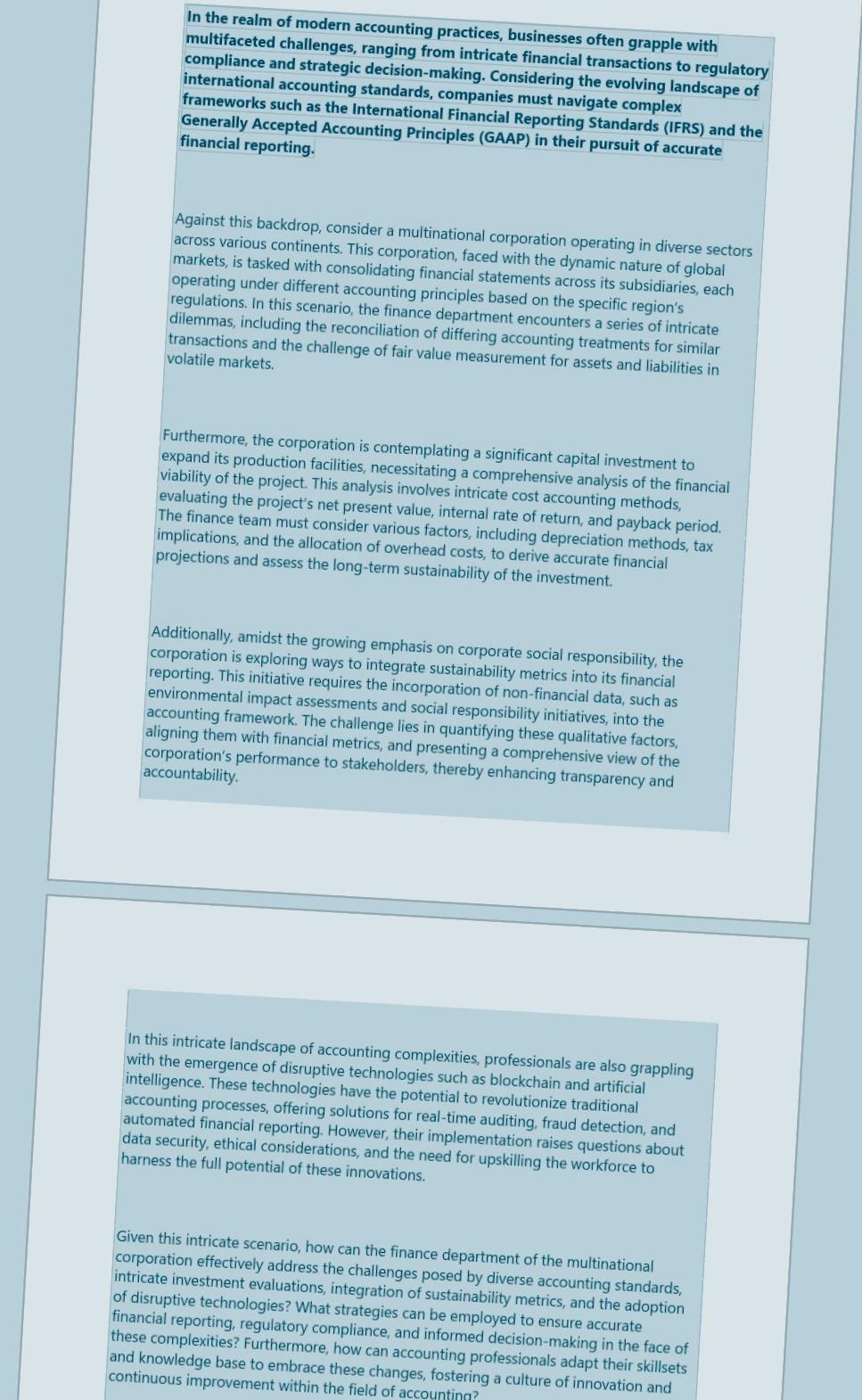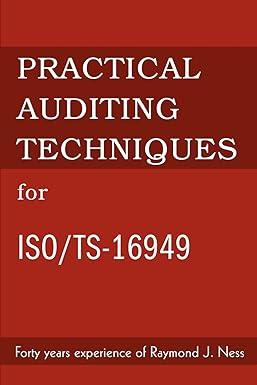Answered step by step
Verified Expert Solution
Question
1 Approved Answer
In the realm of modern accounting practices, businesses often grapple with multifaceted challenges, ranging from intricate financial transactions to regulatory compliance and strategic decision-making. Considering

In the realm of modern accounting practices, businesses often grapple with multifaceted challenges, ranging from intricate financial transactions to regulatory compliance and strategic decision-making. Considering the evolving landscape of international accounting standards, companies must navigate complex frameworks such as the International Financial Reporting Standards (IFRS) and the Generally Accepted Accounting Principles (GAAP) in their pursuit of accurate financial reporting. Against this backdrop, consider a multinational corporation operating in diverse sectors across various continents. This corporation, faced with the dynamic nature of global markets, is tasked with consolidating financial statements across its subsidiaries, each operating under different accounting principles based on the specific region's regulations. In this scenario, the finance department encounters a series of intricate dilemmas, including the reconciliation of differing accounting treatments for similar transactions and the challenge of fair value measurement for assets and liabilities in volatile markets. Furthermore, the corporation is contemplating a significant capital investment to expand its production facilities, necessitating a comprehensive analysis of the financial viability of the project. This analysis involves intricate cost accounting methods, evaluating the project's net present value, internal rate of return, and payback period. The finance team must consider various factors, including depreciation methods, tax implications, and the allocation of overhead costs, to derive accurate financial projections and assess the long-term sustainability of the investment. Additionally, amidst the growing emphasis on corporate social responsibility, the corporation is exploring ways to integrate sustainability metrics into its financial reporting. This initiative requires the incorporation of non-financial data, such as environmental impact assessments and social responsibility initiatives, into the accounting framework. The challenge lies in quantifying these qualitative factors, aligning them with financial metrics, and presenting a comprehensive view of the corporation's performance to stakeholders, thereby enhancing transparency and accountability. In this intricate landscape of accounting complexities, professionals are also grappling with the emergence of disruptive technologies such as blockchain and artificial intelligence. These technologies have the potential to revolutionize traditional accounting processes, offering solutions for real-time auditing, fraud detection, and automated financial reporting. However, their implementation raises questions about data security, ethical considerations, and the need for upskilling the workforce to harness the full potential of these innovations. Given this intricate scenario, how can the finance department of the multinational corporation effectively address the challenges posed by diverse accounting standards, intricate investment evaluations, integration of sustainability metrics, and the adoption of disruptive technologies? What strategies can be employed to ensure accurate financial reporting, regulatory compliance, and informed decision-making in the face of these complexities? Furthermore, how can accounting professionals adapt their skillsets and knowledge base to embrace these changes, fostering a culture of innovation and continuous improvement within the field of
Step by Step Solution
There are 3 Steps involved in it
Step: 1

Get Instant Access to Expert-Tailored Solutions
See step-by-step solutions with expert insights and AI powered tools for academic success
Step: 2

Step: 3

Ace Your Homework with AI
Get the answers you need in no time with our AI-driven, step-by-step assistance
Get Started


